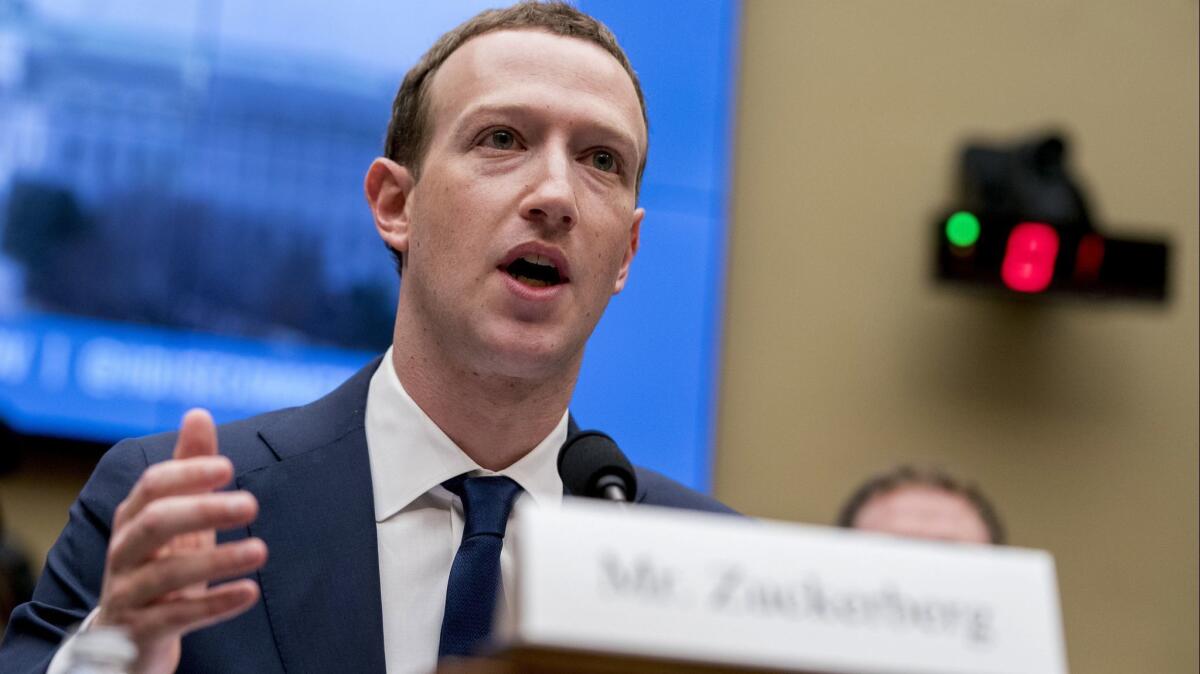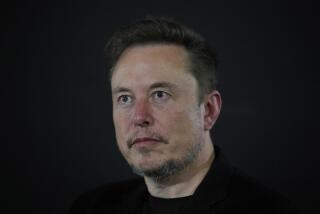Tech giants, world leaders — but not U.S. — pledge to curb internet hate speech

The leaders of France and New Zealand joined with the world’s biggest online platforms in pledging to help curb the internet’s role in spreading hate speech and incitement to violence.
At a summit in Paris on Wednesday, representatives from Facebook Inc., Twitter Inc. and Alphabet Inc. committed to use and develop rules, algorithms and direct intervention to curb the uploading, promotion, amplification and distribution of violent extremism on social media platforms. The initiative calls for hate speech to be “immediately and permanently” taken down, though it isn’t legally binding.
The White House said late Wednesday it is not endorsing the pledge. In a statement, the White House said it will “continue to be proactive in our efforts to counter terrorist content online” while also protecting free speech.
French President Emmanuel Macron and New Zealand Prime Minister Jacinda Ardern were joined by leaders from Britain, Canada, Jordan, Indonesia and other nations to approve the push they dubbed the “Christchurch Call.”
The call comes after the March 15 mosque shootings in Christchurch, New Zealand, in which 51 people were killed by a right-wing extremist who had posted racist manifestos online and then live-streamed his rampage. Facebook and Alphabet’s YouTube were widely criticized for failing to quickly remove the video from their platforms.
“Today must be Day One for change,” Ardern told reporters after the summit. “It’s a road map for action, and it’s comforting to see major internet companies committing to collaborative action.”
Macron admitted that it was hardly the first time governments have called for action or internet companies have promised steps to contain online incitement — he listed a series of forums and initiatives — but he said this time there were leaders from all the world’s continents, civil society and companies working together.
Companies and states pledged to endorse the initiative, which includes transparent reporting of incidents, research for “technical solutions to prevent” the uploading and dissemination of hate speech, and the use of algorithms to “redirect users” from terrorist and violent extremist content or to promote “credible and positive alternatives or counter-narratives.” Macron said more work was needed to define some of what he called “gray zones” around hate speech.
Twitter Chief Executive Jack Dorsey, Facebook Vice President for Global Affairs and Communications Nick Clegg and Google Chief Legal Officer Kent Walker attended the meeting, according to the French president’s office.
Attendees also included British Prime Minister Theresa May, Canadian Prime Minister Justin Trudeau, Irish Premier Leo Varadkar, Senegal President Macky Sall and Jordan’s King Abdullah II, as well as representatives from Amazon, Microsoft Corp. and Vivendi’s DailyMotion.
Facebook said it’s tightening rules for Facebook Live to try to prevent people from using the streaming service to “cause harm or spread hate.” In a blog post timed to coincide with the summit, the social network said it’s instituting a “one strike” policy for users who violate its rules on offensive or dangerous content, such as sharing a link to a terrorist group’s statement. Those users will be blocked from using Facebook Live to broadcast content for a specific period of time after a first offense. Facebook said the restrictions will be expanded into other areas in the coming weeks.
“At the end of the day, everyone will be judged on their actions,” Ardern said.
Macron suggested the U.S. couldn’t sign the endorsement because of its more absolutist positions on freedom of speech, but both he and Ardern said the U.S. agreed with the general goals.
“The statement they put out demonstrates considerable support for the principles of our call to action,” Ardern said. “I think the statement speaks for itself.”
More to Read
Inside the business of entertainment
The Wide Shot brings you news, analysis and insights on everything from streaming wars to production — and what it all means for the future.
You may occasionally receive promotional content from the Los Angeles Times.










